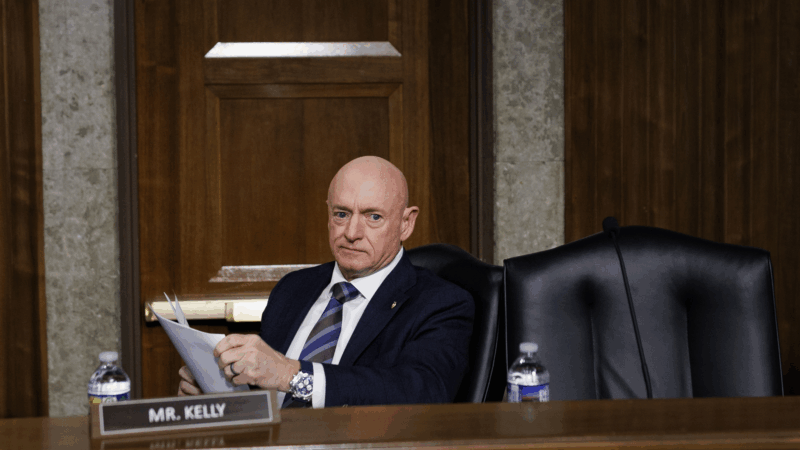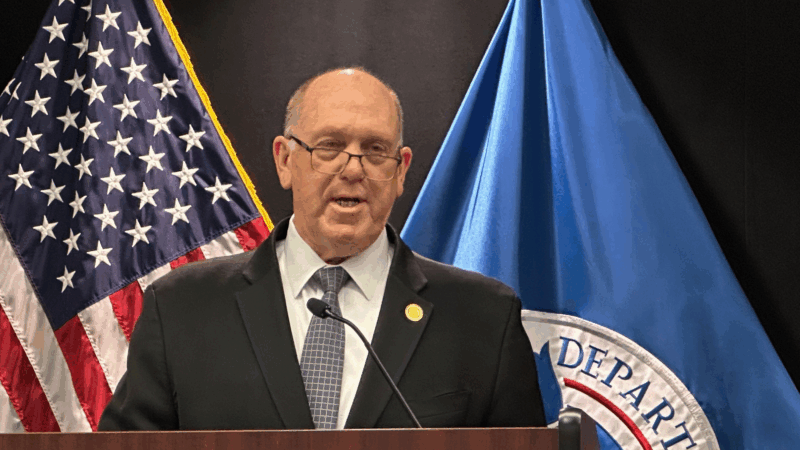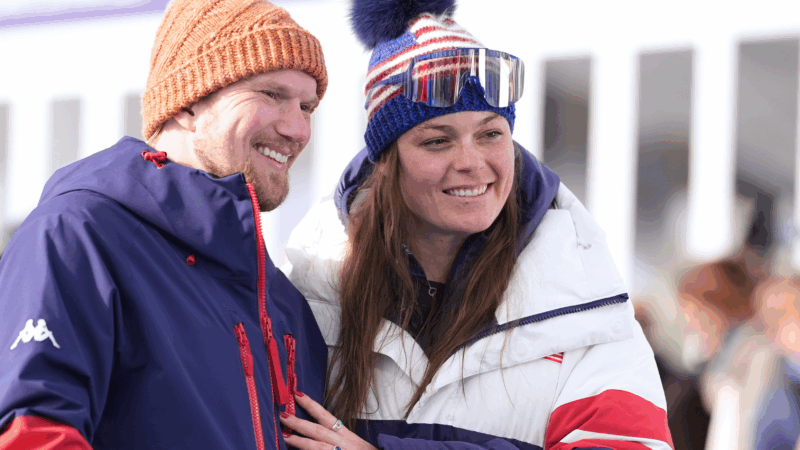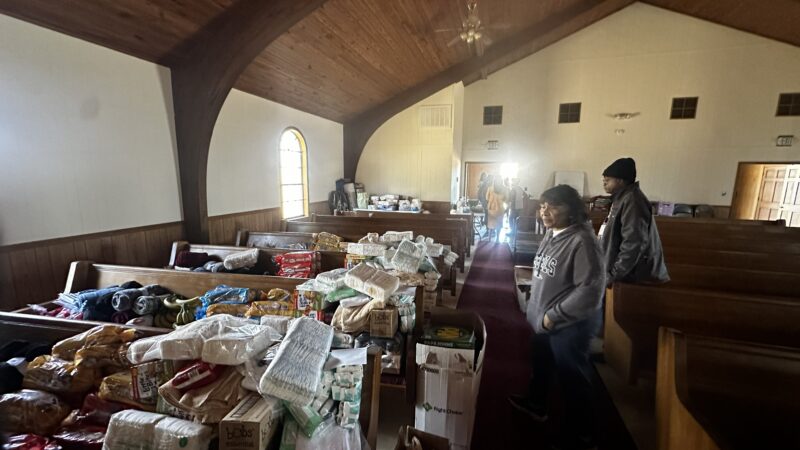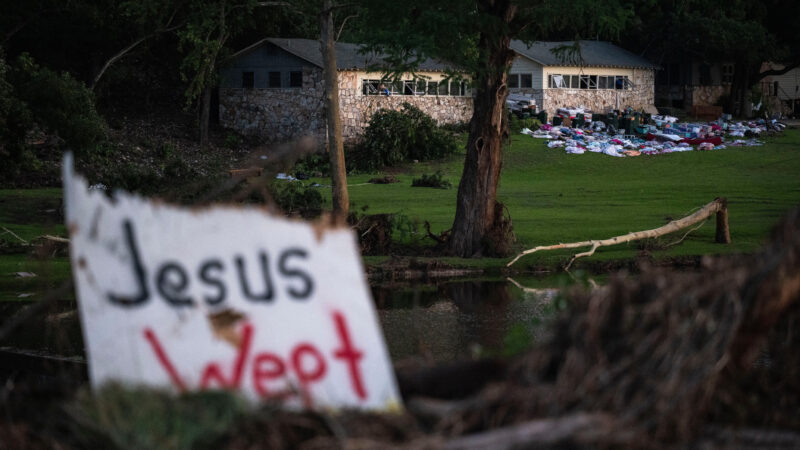Election: The Numbers Game
UAB professor Larry Powell is ‘the poll guy’. When media outlets want to do a political poll ‘ more often than not they tap Powell for the job and ,boy, has he been busy these past few months!
“Typically in politics the odd number years are off years, where you’re supposed to it back and relax and get ready for the next one. We’ve gone immediately into a major political campaign just because of this tax situation.”
Powell’s done polls for the Birmingham News, Fox 6, television stations in Montgomery and Huntsville. His latest poll, conducted Tuesday though Thursday of last week, showed the plan was losing support among blacks and white, rich and poor, men and women, young and old, republicans and Democrats. Pretty much across the board. But how accurate are these polls?
“You need to realize to start off with, no matter how good you are you’re supposed to be wrong one out of every 20 times.”
Remember the Alabama lottery? Early polls had it winning by six percent. And the Riley-Siegelman race. Some polls put Rileys lead at as much as ten points, but it ended up being a nail biter. Powell the predictive power of the poll depends on a lot of things, including the poll sample.
“We don’t divide the state equally up by population. Some areas will turn out heavier than others. But we also take into consideration such demographic variables as age, income, gender and ethnic background.”
Women vote more frequently than men. Older people are more likely to vote than younger people. And black turnout in Alabama varies from 15 to 25 percent of the total vote. In July ‘ a poll suggested that 39 percent of black voters were squarely against the tax and accountability package’ but in last week’s poll just slightly under a quarter identified themselves as ‘no’ votes ‘ meaning the church-based, grassroots effort to convince black voters may be paying off for the Riley camp. But what about undecided voters?
“well, if you’ve got a poll that shows 40% for candidate A, 40% for candidate B, and then 20% undecided. There is a tendency for the average person to say, well the undecided voters are probably going to split 50-50 just like the others. That will not occur. For whatever reason, the undecided voters tend to split at least two-to-one for one particular person.”
Powell says in referendum like today’s vote on Amendment One ‘ undecided voters vote ‘no’ 80 to 90 percent of the time. It’s just easier to vote against change if you’re not ‘sure’ you want it. It would seem, then, that the opponents of Amendment One have it all sewn up. But not so fast, says University of Alabama Birmingham political scientist Christopher Stream.
“Because the polls are a representative sample of Alabama, we’re getting a large group of cynical Alabamians who probably are not going to vote anyway. //If we were to just go poll, say college graduates making 50-thousand-dollars a year and up, we’d probably see a more accurate picture of what it could look like.”
In fact, Stream says the only chance Riley has of success is if there’s low voter turn-out’ if low-income, under-educated alabamians stay at home.
“Drive around the neighborhoods and where do you see the ‘yes’ signs? You see them in mountain brook and Vestavia and hoover and Homewood … but you don’t see signs in irondale and you don’t see signs in woodlawn and you don’t see signs in some of the poorer areas of Alabama on voting ‘yes’. I think Riley really needs those folks to stay home!”
The possibility that anti-tax voters might stay home does worry Bob Gambacurta ‘ a spokesman for the Tax Accountability Coalition, which organized to fight Amendment One.
“The polls we see now showing us 20 points ahead’ they make you feel good, but they make you feel bad too because we say to ourselves, well, we hope our supporters don’t see this and say oh, I don’t need to go to the polls on election day ‘ everybody I know is gonna vote against this tax so I’ve got something else I’ve got to do that day, I’ll just go do it.”
It’s a concern, but Pollster Larry Powell says Gambacurta shouldn’t worry too much.
Anti-tax voters tend to be heavier and stronger voters than pro-tax voters.
That worries Gary Youngblood ‘ of the Alabama Partnership for Progress.
“If you break those public opinion polls down, especially by per capita income, you’ll find that where we are losing this battle, is in the low-income families’ in the low income neighborhoods and that’s b/c they are listening to talk radio and they’re hearing ‘tax increase’, not ‘tax decrease’. // I’ll tell you what will be heartbreaking for me and for us ‘ to lose it on the vote of the people that will plan would help the most!”
Public opinion polls aside, there is one thing that both sides of this contentious tax debate can agree on…
Youngblood: “It’s one thing to convince people to vote yes, or even to vote no, but you’ve got to get them to the polls.”
Gambacurta: “I’m kind of old fashioned so I say the only poll that counts is the one (on September 9th)…”
Judge temporarily blocks Pentagon action against Mark Kelly over illegal orders video
Kelly, an Arizona Democrat, sued Hegseth after the Defense Secretary moved to formally censure him for participating in a video where he told service members they can refuse illegal orders.
Olympic athletes push their bodies to the limit. Should we?
Elite athletes often push through pain to achieve victory. But, everyday exercisers need to distinguish between soreness which is normal and pain which is the body's way of telling you to stop.
Trump border czar Tom Homan announces Minnesota immigration surge is ending
The aggressive enforcement operation resulted in thousands of arrests, and two U.S. citizens were fatally shot in Minneapolis by federal immigration agents.
At the Olympics, skier Breezy Johnson won a gold medal — and an engagement ring, too
When Johnson and her partner Connor Watkins met on Bumble, he had "no idea" who she was. "I was out-kicking my coverage," he said
Community organizations step up in Gulf South winter storm recovery: ‘The need is so big’
After January's winter storm, the Oxford community has come together to take care of those in need — not just while waiting for other responders, but also fill persistent gaps.
Camp Mystic parents from Alabama seek stronger camp regulations
Sarah Marsh of Birmingham, Ala. was one of 27 Camp Mystic campers and counselors swept to their deaths when floodwaters engulfed cabins at the Texas camp on July 4, 2025. Sarah’s parents are urging lawmakers in Alabama and elsewhere to tighten regulations.

